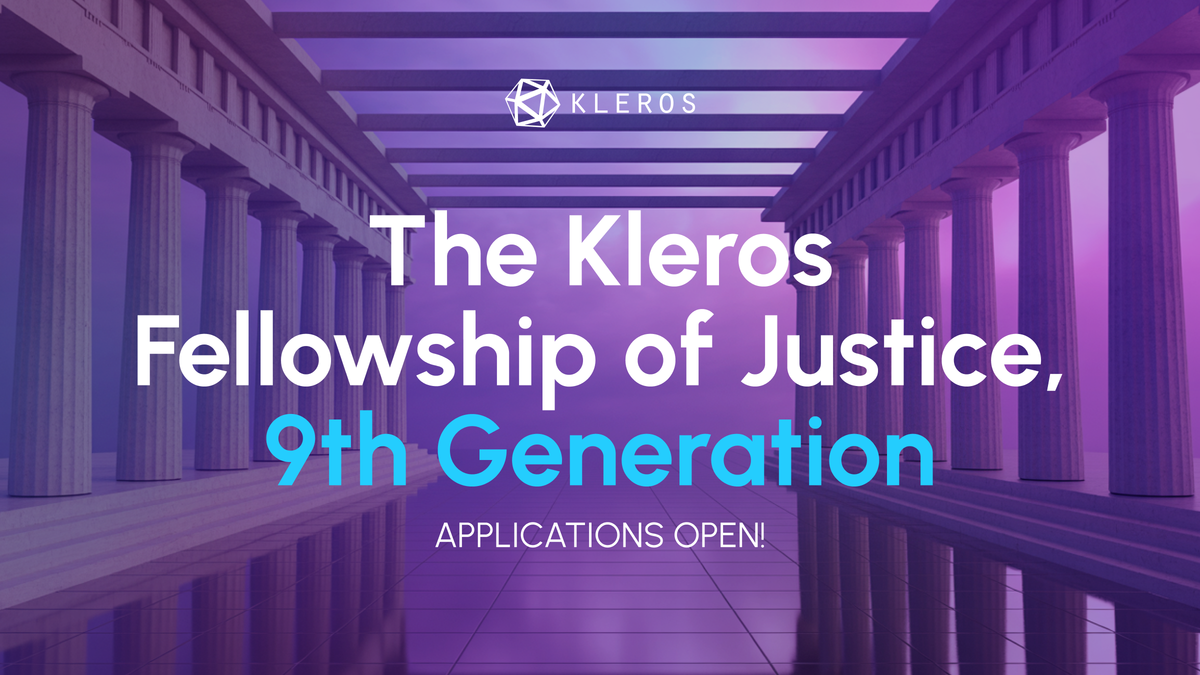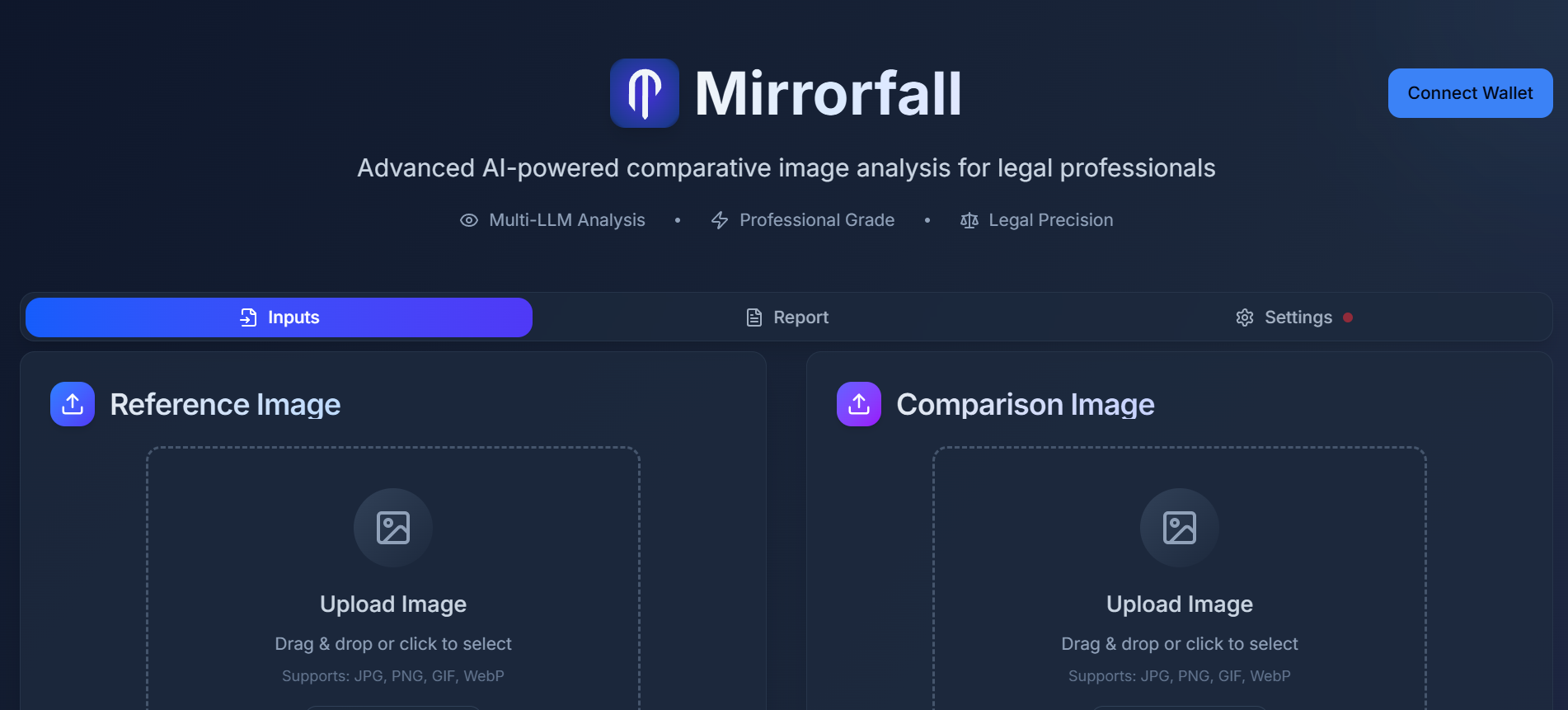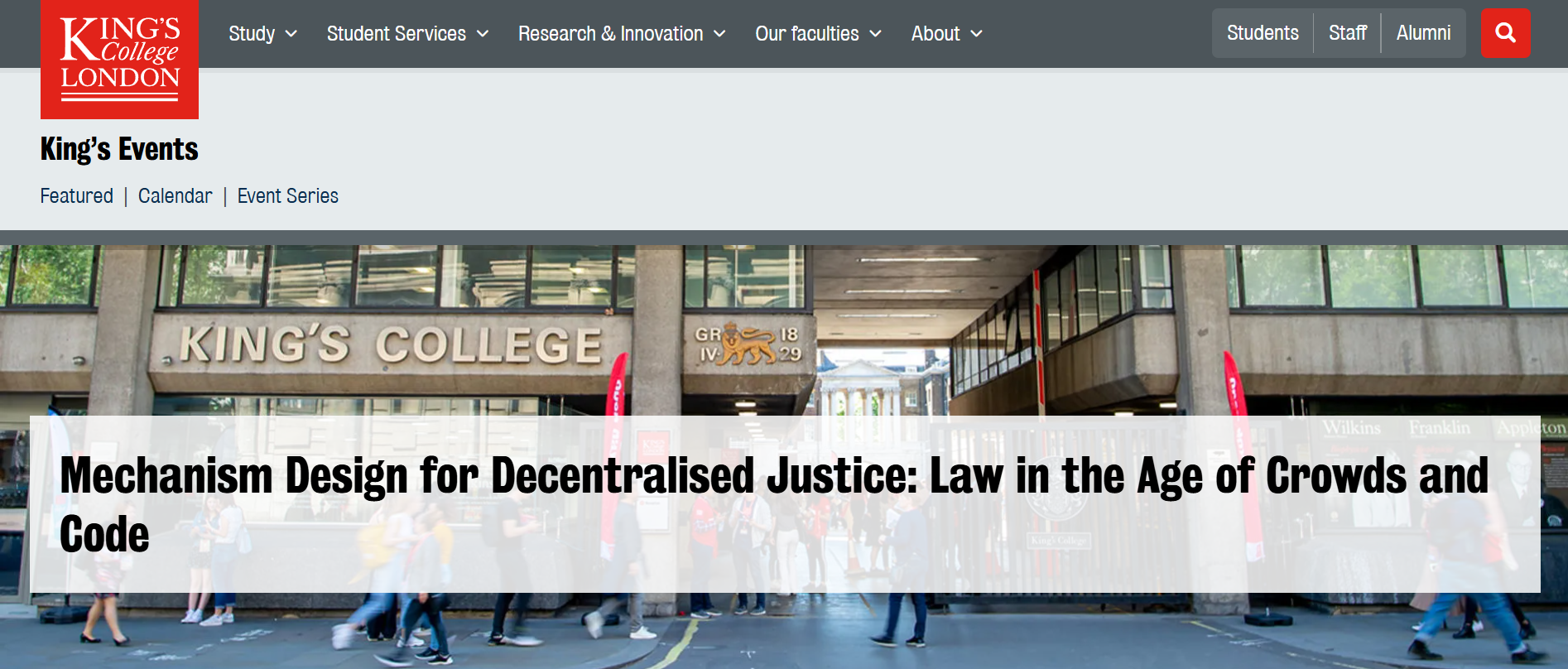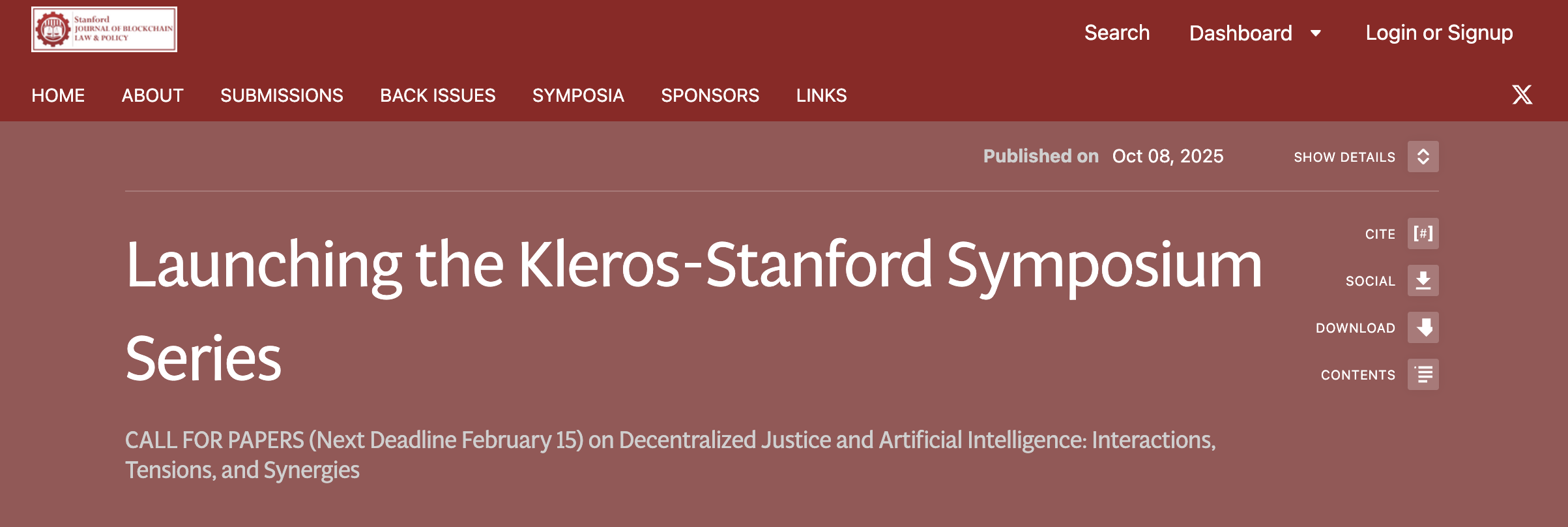The Kleros Fellowship of Justice, 9th Generation: Applications Open!

The application process for the seventh cohort of the Kleros Fellowship of Justice is open! Join us and make your contribution to the decentralized justice movement...
In August of 2018, we launched the Kleros Fellowship of Justice with the goal of creating a community of experts in the emerging field of decentralized justice.
In this six-month program, participants from the fields of computer science, cryptoeconomics, law, and business collaborate with core members of the Kleros team to carry out research or projects that advance the field of decentralized justice.
Kleros is excited to announce the call for research proposals for the ninth cohort of our Fellowship!
We invite innovative proposals across a range of areas, including artificial intelligence, decentralized commerce, enterprise dispute resolution, DAO governance, and more.
Check below for further details and apply by filling in the form.
Fellowship Tracks
- Dispute Resolution in gaming and eSports. As the global eSports sector expands, traditional legal frameworks are increasingly challenged by its unique issues. Fellows are invited to propose research topics that may include both theoretical analyses of decentralized justice and practical applications of the Kleros model tailored to specific eSports scenarios.
Federico presenting about the use of Kleros for dispute resolution in the eSports industry at a conference co-hosted with the LexTech Institute and the World Intellectual Property Organization a the University of Neuchâtel. May 2024.
- Decentralized Commerce (DeCom). This track explores how Kleros can support the growth of credibly neutral marketplaces for real world goods and services by solving risk management issues including dispute resolution. Potential research areas include designing dispute mechanisms for human services, integrating Kleros into AI-assisted arbitration workflows, and exploring its role in emerging DeCom environments such as pop-up cities or crypto-native marketplaces.
- Intellectual Property. This fellowship track investigates how Kleros can be used to resolve intellectual property (IP) disputes in a decentralized and cost-effective manner, especially those arising in the digital world. Fellows are invited to explore how hybrid models, combining AI agents for initial assessments with appeal mechanisms handled by human experts, can be used to address copyright and other IP-related conflicts. Possible topics include designing workflows for resolving these claims and enforcing them on digital platforms such as social media. Research should include both technical and legal dimensions, offering practical designs and theoretical models for future IP adjudication systems powered by Kleros.

- Consumer Dispute Resolution in Enterprises. This fellowship track explores the application of Kleros within enterprise settings to address consumer disputes. Fellows are encouraged to choose a topic that would investigate how Kleros can be integrated into sectors such as e-commerce, fintech, and insurance, addressing the "justice gap" in the digital economy, where conventional methods often fail. Fellows are invited to propose topics that explore the practical, legal, and operational aspects of deploying Kleros within enterprise settings.
- Governance. This fellowship track focuses on how Kleros can be effectively integrated into the governance structures of DAOs to enhance decision-making and dispute resolution. Participants will be encouraged to research strategies for utilizing Kleros to improve transparency, accountability, and efficiency within DAOs. Potential topics may include unique challenges of DAO governance, mechanisms for conflict resolution, voting processes, stakeholder engagement and more.
Federico presenting on the use of Kleros for DAO governance. Ethereum France Conference.
- Cryptoeconomics and Incentive Design. Exploring the design of economic incentives in decentralized networks, tokenomics, and the role of cryptoeconomics in ensuring fair and efficient governance. Potential research topics may include questions such as how different incentive structures, like staking, slashing mechanisms, or reward distributions, impact juror behavior.

- Artificial Intelligence in Dispute Resolution. AI can assist in evaluating evidence, predicting case outcomes, or even guiding jurors by highlighting relevant information, all while ensuring that the human element of justice is preserved. Suggested research topics may include but are not limited to: developing AI tools that could be integrated into Kleros’ arbitration process, exploring how AI can support jurors by analyzing case data and reducing biases as well as addressing ethical considerations of the use of the AI in blockchain-based dispute resolution systems like Kleros.

- Legal Integration of Decentralized Dispute Resolution Systems. This track explores how Kleros can be incorporated into conventional legal frameworks, including courts and arbitration systems. Key topics include the legal recognition of Kleros decisions, the potential for enforcement by state authorities, and the development of hybrid models that blend decentralized and traditional dispute resolution methods.
- Consumer ADR and Government Recognition. This fellowship track focuses on the legal frameworks that enable private entities to act as consumer alternative dispute resolution (ADR) mechanisms with binding effect on providers. The aim is to identify jurisdictions where the law allows (or mandates) that businesses participate in ADR proceedings initiated unilaterally by consumers, without requiring the company’s prior consent. Fellows are encouraged to map such legal frameworks globally, analyze the requirements for institutional recognition, and explore how Kleros could be positioned within these systems.
- Dispute Resolution in Social Media. Last but not least, this fellowship track focuses on exploring how Kleros can be applied to address complex challenges within social media platforms. Potential research topics include innovative ways to integrate decentralized dispute resolution mechanisms for content moderation, user conflicts, intellectual property claims, and the fight against fake news through transparent, community-driven fact-checking and adjudication processes.
Federico presenting on the use of Kleros to improve social media moderation at the “Dispute Resolution in Social Media Platforms” conference held at the University of Neuchâtel. May 2024.
Candidates will be accepted into the Fellowship based on the quality of their proposal. $1,000 in PNK will be paid to candidates upon the successful completion of the program.
The completion of the program will require:
- A written submission of a document.
- Submission of a 10 to 20 minutes video recording presenting slides with the main findings of the research.
Want to apply but your interest doesn't fall in any of these categories?
The Fellowship also accepts candidates from other lines of research in law, business and computer science.
Some of the topics of import addressed by Fellows from previous cohorts are:
- Kleros: A Socio-Legal Case Study Of Decentralized Justice & Blockchain Arbitration by Luis Bergolla.
- Interactions between decentralized justice and artificial intelligence by Alexei Gudkov.
- Recognition and enforcement of Kleros awards under The New York Convention in developing areas by Jake Lowther.
- Accommodating Kleros as a decentralized dispute resolution tool for civil justice systems: theoretical model and case of application by Mauricio Virues.
- Dispute resolution in P2P renewable energy markets by Mauricio Duarte.
- Kleros for copyright disputes in digital environments by Paolo Archila.
On this page, you can access the research produced by participants of the previous editions of the program.
Why join the program? Check this post with a number of testimonials from previous participants.
Have a question? Feel free to email fellowship@kleros.io
Apply now and help build the future of decentralized justice!
